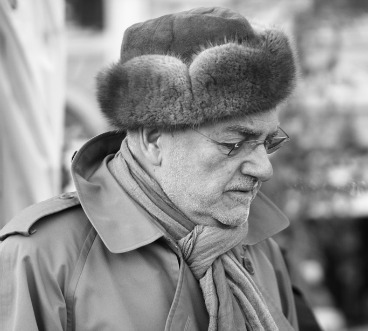This volume is the third compilation of selected documents emerging from the Helsinki accord monitoring groups in the Soviet Union published by the Commission on Security and Cooperation in Europe. In a sampling of reports written between late 1976 and the summer of 1978, it is intended, as in the previous compilations, to illustrate the broad range of human rights concerns of the various monitoring groups whose common goal is the furthering of Final Act implementation in their own country.
Efforts to promote CSCE compliance in the Soviet Union began in May of 1976 when 11 human rights activists in Moscow, led by Yuri Orlov, formed the first Public Group to Promote Observance of the Helsinki Agreements. Inspired by its example, other Helsinki groups were formed in Kiev, Vilnius, Yerevan and Tbilisi. Additional independent organizations with more narrowly defined focus, such as the Christian Committee for the Defense of Believers’ Rights and the Working Commission on the Abuse of Psychiatry for Political Purposes, also emerged. Today, more than 50 group members, representing a broad spectrum of religious, ethnic and professional affiliations, are actively documenting human rights violations and engaged in promoting implementation of the Helsinki accord.
While maintaining their individual identities, Soviet monitoring groups have frequently collaborated in their efforts to promote human rights. When the Lithuanian and Ukrainian groups were formed, for example, the Moscow group sponsored a joint news conference to publicize their creation. The Christian Committee, composed of four members of the Russian Orthodox Church, has written appeals on behalf of Adventists, Jews and Baptists. On occasion, two or more groups have issued joint declarations and other documents.
Ordinary Soviet citizens, learning of the Helsinki groups via Western radio broadcasts, have traveled thousands of miles from remote regions in order to present documented evidence on human rights violations. Similarly, monitoring group members have journeyed great distances to conduct interviews and related research. Representatives of the Moscow group, for example, were sent to the northern Caucasus and to distant Nakhodka to visit Pentecostal communities desiring to emigrate.
The representative documents of the Soviet Helsinki monitoring groups reproduced here address a wide range of human rights concerns: repressions of group members, violations of the rights of ethnic minorities, difficulties of emigration from the USSR, problems of religious believers and difficulties of current and former political prisoners. Economic concerns are also treated in several documents in the compilation.
The Soviet monitoring groups carry out their work in an extremely repressive environment. Although 20 members of these organizations have been arrested and imprisoned, many new members have joined. Frequently, documents have been confiscated by the KGB. During a search of Orlov’s apartment in Moscow, for example, material documenting persecution of parents advocating religious practices for their children was removed. In another case, Aleksandr Ginzburg’s residence was searched and information on the health of seriously ill political prisoners was seized.
The documents of the Soviet Helsinki monitors are truly a testament to their strength, courage and dedication. Their long-range goal — the achievement of a humane society based on respect for law — has yet to be realized. But already they have attained a moral victory in gaining the attention and respect of private and governmental groups throughout the world.






